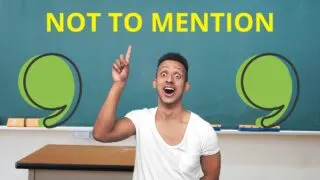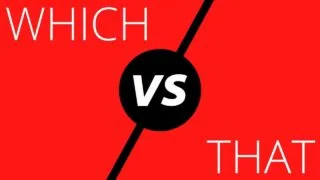Sometimes, you encounter a group of words that are always used together and that have a different definition from their literal meaning. These phrases are called “idioms.” The phrase “not to mention” is sometimes used as an idiom. Knowing when it is an idiom is an important part of identifying whether it also needs a …
Search results for: bear in mind
One of a writer’s greatest weapons is his or her solid footing on grammatical concepts, including sentence structure, lexis, and stylistics. A writer connects his or her internal thoughts to the reader through textual characters that represent a whole unit of meaning. This whole unit of meaning can also be dissected in parts in order …
Wondering why people often use “looking forward to speaking with you” in business correspondence? Or, are you simply aiming to confirm whether the expression is grammatically sound? Come aboard! Today, we’ll take you on a cruise that will let you discover the nitty-gritty behind “looking forward to speaking with you.” Let’s sail away now. …
Email communication is tricky, especially as it can be difficult to convey nonverbal elements of speech in written form. When the different registers of English (formal, informal) enter the picture, things get even trickier. Today we’ll look at several ways to address emails to a group of people in a formal work setting. Should …
In recent years, Latin American and Spanish soap operas have taken the spotlight in the world-famous streaming app. So, if you’re looking for a refreshing twist to your weekend (or your daily dose of binge-watching), then you’ve certainly come to the right place. After all, Spanish TV shows are not only extremely fun to watch …
Some words in English always do the same thing. For example, the words “girl” and “boy” are always nouns, and the word “beautiful” is always an adjective. Some words can act as both noun or verb, but it is pretty easy to spot which one they are. For example, “cook” can be a verb meaning …
If you have been on the job hunt recently, you might have seen some ads that ask for a cover letter. The most common use of a cover letter is in applying for jobs, but it may be required or useful in other contexts as well. A cover letter should never be more than a …
Hypothetically put yourself in the shoe of a person who has never heard of the English language his entire life. Now, try to say “where were we” aloud and think of how strange, not to mention alien-ish, you sound. Words that resemble each other, without fail, torture language learners, as in the enigma on “where” …
In order to know whether we’ve written an effective text, we can check its logical coherence, readability, and rhythm. But, how can we achieve this? Taking a closer look at some of the subtlest grammatical elements such as punctuation marks and transition words will make a difference. So, we’ve customized a post covering these grammatical …









